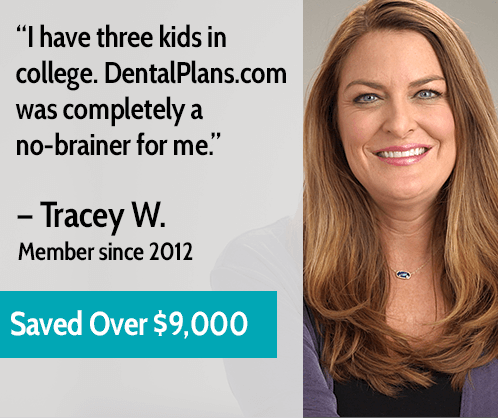“Health is a state of complete harmony of the body, mind, and spirit.” – B.K.S. Iyengar. For self-employed individuals, this harmony often hinges on selecting the right health care plan. With health care plans for self employed professionals offering peace of mind and protecting both health and financial assets, it’s crucial to navigate through all available options effectively.
Understanding Health Care Plans for Self Employed
The Landscape of Health Care Plans for Self Employed
Self-employed workers face unique challenges regarding health care plans. The ACA marketplace provides various options, but rising health insurance premiums have created a significant barrier. Those who do not qualify for subsidies find themselves overwhelmed by the high costs associated with premiums. Without the safety net of an employer-sponsored plan, self-employed individuals must carefully examine their options to ensure they find a health care plan that aligns with their health needs and financial situation.
Identifying Key Features of Health Care Plans for Self Employed
When evaluating health care plans for self employed professionals, it is vital to consider the plan features. This includes premiums, deductibles, out-of-pocket expenses, and out-of-pocket maximums. Understanding these components allows freelancers and independent contractors, such as lawyers, consultants, and beauticians, to customize their plans to best fit their needs. A well-chosen plan can greatly enhance financial stability, reducing the stress associated with hefty medical bills.

Exploring Alternatives to the ACA Marketplace
Private Health Insurance: A Viable Solution
For self-employed individuals, private health insurance is an attractive alternative to the ACA marketplace, especially in times of rising premiums. Self-employed professionals, including truck drivers, electricians, and realtors, can benefit significantly from tailored plans offered by private insurers that meet their specific health care needs. These plans often come with extensive provider networks and flexible policy features, which enhance accessibility and budgeting flexibility.
The Benefits of Customization in Health Care Plans for Self Employed
Customization is a cornerstone of private health insurance. Self-employed individuals can modify key elements such as premium rates, deductibles, and out-of-pocket limits. This customization allows for better financial planning, especially for freelancers and gig workers who may have variable incomes. By selecting a health care plan with manageable out-of-pocket costs, individuals can mitigate financial risks and enjoy peace of mind as they manage their health care journeys.

The Financial Impact of Health Care Costs
Mitigating Healthcare Costs for Self Employed Individuals
Health care expenses can significantly affect the financial security of self-employed individuals. High premiums and unexpected medical costs can drain savings and reduce disposable income. However, by carefully selecting appropriate health care plans for self employed, professionals can find ways to not only save on premiums but also limit out-of-pocket expenses. This financial strategy ensures that healthcare does not become a barrier to their success.
Long-term Health Benefits of Strategic Planning
Making informed choices about health care plans can yield long-term benefits for self-employed individuals. A strategic plan that minimizes healthcare costs enables better allocation of resources for personal and business growth. Subsequently, healthier individuals can focus on their work, leading to increased productivity and overall satisfaction. The financial impact of these decisions reverberates throughout their personal and professional lives.
Get a hussle-free consultation
Choosing the Right Health Coverage
Tips for Selecting Health Care Plans for Self Employed
Choosing the right health care plans for self employed individuals involves a thorough evaluation of personal health needs and financial capabilities. Consideration should be given to how often you seek medical attention, any pre-existing conditions, and your total budget. Additionally, comparing multiple plans and understanding the fine print is essential in order to ensure that you choose a plan that provides comprehensive coverage.
The Role of Licensed Experts in Plan Selection
Consulting a licensed health insurance expert is invaluable for self-employed individuals navigating this complex landscape. These professionals offer personalized market research consultations, saving time and reducing the risk of costly mistakes. They can help you identify the most beneficial health care plans for self employed professionals according to unique circumstances, ensuring you make informed choices that best protect your health and financial future.

The Importance of Health Insurance for Self Employment
Enhancing Peace of Mind through Health Coverage
For self-employed individuals, having the right health care coverage means securing peace of mind. Knowing you have reliable health care coverage allows you to focus fully on your business and personal growth without the constant worry of potential health crises. Health care plans for self employed professionals stabilize financial outcomes, creating an environment where entrepreneurs can thrive.
Achieving Better Health Outcomes
With appropriate health care plans for self employed individuals, health outcomes can improve significantly. Access to preventive measures and timely medical interventions lead to healthier lifestyles and lower overall healthcare costs. Therefore, making the right choice concerning health coverage directly affects one’s overall quality of life and business success.

Get Started on Your Health Coverage Journey
The Advantage of Early Action
The earlier self-employed individuals understand and act upon their health coverage needs, the better prepared they are to face unexpected medical expenses. There’s a wide array of options available, and taking the time to research and compare can make a world of difference. Early action means being proactive about health, implications, and finances, leading to a more secure future.
Your Path to Personalized Health Solutions
As you navigate the options for health care plans for self employed individuals, remember that there’s no one-size-fits-all solution. The best approach is to understand your unique health requirements and financial situation. From there, you can explore tailored options that will not only meet your needs but also enhance your overall quality of life.
Choosing the right health insurance plan for self employed individuals is paramount to not only protecting your health but also ensuring financial stability. The impact these plans have on health and financial security cannot be overstated. For immediate assistance, please call or text (407) 588-0505.
Frequently Asked Questions
1. What are the common health care plans for self employed individuals?
Common health care plans for self employed individuals include private health insurance plans, short-term health plans, and health savings accounts (HSAs).
2. How do rising premiums affect self-employed professionals?
Rising premiums can strain the financial resources of self-employed individuals, making it challenging to afford adequate health coverage. This can require careful selection and evaluation of plans to manage costs.
3. Can self-employed individuals customize their health insurance plans?
Yes, many private health insurance providers allow for customization of plans where policyholders can select features such as premiums, deductibles, and out-of-pocket limits to fit their personal healthcare needs and budget.
4. What resources are available for self-employed individuals looking for health insurance?
Self-employed individuals can consult licensed health insurance experts, use online marketplaces, or refer to professional associations that offer resources and guidance specific to freelancers and independent contractors.
5. How can self-employed individuals save money on health care costs?
Self-employed individuals can save money by comparing various health care plans for self employed, selecting high-deductible plans paired with HSAs, and leveraging preventive care services to reduce long-term health costs.







0 Comments